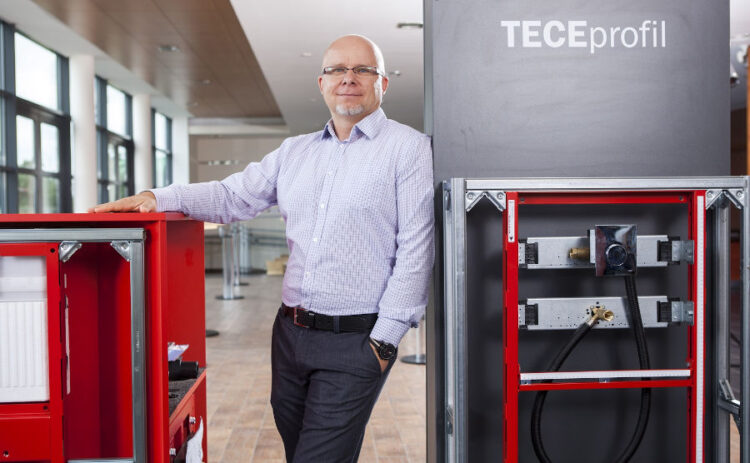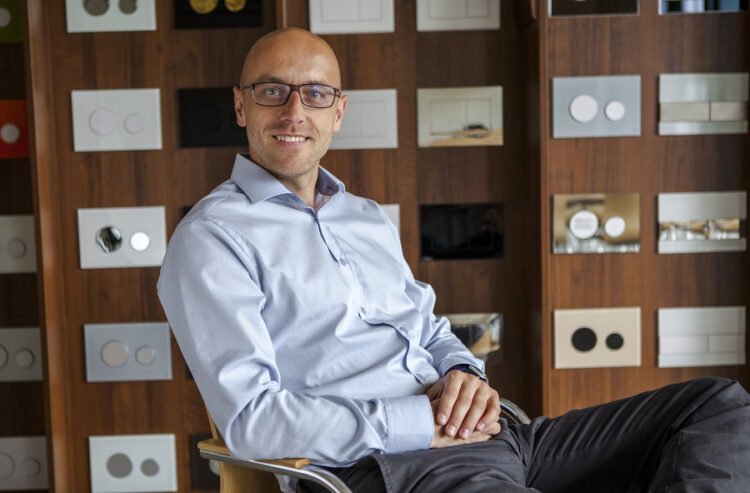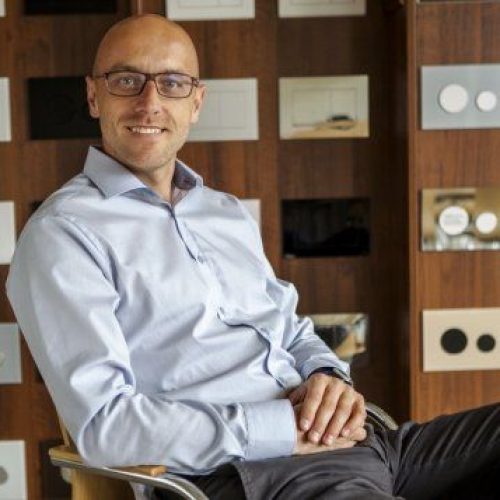TECE is a group known for its high-quality brand-name products, headquartered in Emsdetten, Germany. In Strzelin, in Lower Silesia, where the Polish branch is located, there are two of the five manufacturing facilities of the company. They manufacture both finished products and installation components in cooperation with the other plants.
The cooperation with the German headquarters, working together on fulfilling orders for customers and complex processes of settlements between companies require the detailed coordination of production and sales activities, as well as the precision and speed in financial settlements between the branches.
The above reasons were the major arguments for launching the corporate SAP ERP system at TECE Poland.
In mid-May 2014, in Strzelin, the project of the rollout and necessary customization of SAP in finance and controlling, sales and distribution, materials management and production management areas was started. In addition, the scope of work was expanded to include the implementation of the SAP WM functionality supporting the warehouse management. SAP WM is a separate installation, integrated with the corporate SAP template.
Both the rollout and implementation
In Poland, TECE consists of two separate companies: production TPS, whose main customer is TECE Germany, and the trading company TECE Poland, which runs a distribution network in Poland and sells also abroad. For organizational reasons, the project work was carried out in parallel for the trade and production organizations. Go lives for these entities were planned to take place with a few months interval between them. In September 2015, a system supporting the trade organization was launched, and in December 2015, a system in the production organization went live.
The project work was carried out by consultants from the German headquarters of the company as well as employees of TECE Poland. Along with the decision to carry out the project of SAP rollout and SAP WM implementation, it was decided in TECE that for purposes of the project work and further ongoing maintenance and development of the system, the company would build its own team of specialists with appropriate competence. In addition, BCC (now All for One Poland), a consulting company specializing in SAP services, was invited to the project.
BCC consultants focused on building a concept of the solution for the Polish branch, helping identify major discrepancies between the template and the Polish business and legal framework (a fit & gap analysis), and developing solutions taking into account these differences. In the later stages, when the newly created team of SAP specialists in TECE expanded accordingly and was able to perform most of the work on its own, BCC consultants helped in the areas where TECE did not develop its own competence.
The launch of the system in TECE Poland was preceded by a verification and cleaning of master data in the previous ERP system, based on the Oracle relational database and the FOSS solution. The migration to SAP ERP was carried out using standard SAP tools, such as LSMW, and programs developed specially for purposes of the project. It covered data on customers, materials, suppliers, price lists and price conditions in both purchasing and sales, accounts, fixed assets, cost centers etc.
The good preparation of this process resulted in the efficiency of the migration. Suffice it to say that the difference in the opening and closing balance of stock levels between the accounts in SAP and the old system was only 20 groszes.
As pointed out by Arkadiusz Grzanka, Senior PP/QM Consultant at TECE: “Proper preparation of master data for the production plant always takes a lot of time, but it is necessary for the system to be launched properly. The correctness of the data helps avoid errors in many areas.”
From the first day of work in SAP all sales data, data on requirements and from the COPA controlling area as well as stock levels were transmitted to the SAP BW reporting system on an ongoing basis. In addition to current sales data, historical sales values (up to 8 years back) were imported to SAP for both business units.
SAP ERP was integrated with the archiving systems of DMS printouts. The automatic exchange of data between the system and customers on the EDI platform, for four protocols, from the customer order to the sales invoice (ORDERS, ORDERSP, DESADV and INVOICE) was also activated. As a result, the number of printed documents in the sales process handling was significantly reduced.
The idea behind the implementation project was to maintain a far-reaching consistency with the corporate template of the system and to introduce only the necessary changes justified by differences in the processes or the need to adapt to the requirements of Polish law.
Two areas which were the biggest project challenges were the processes of internal settlements (between companies of the group) and the implementation of the SAP WM functionality for warehouse management.

Arkadiusz Grzanka, Senior PP/QM Consultant at TECE
Intercompany settlements
The launch of the SAP system entailed changes in the organization and the need to create a new unit – Supply Chain Management. It took over a part of the duties of the International Business department and purchasing department. They include the handling of the purchase process between TECE Poland and TECE Germany (in SAP, this process is called STO “Stock Transfer Order") and generating of purchase orders. Currently, in collaboration with the purchasing department from Strzelin, this unit takes care of timely deliveries. The aim of the organizational changes was to ensure the timeliness of deliveries as well as full and reliable information about the availability of a material.
In the TECE Group, there is quite complex structure of purchase orders/production. Production takes place in plants in Poland, Germany and China, among other facilities. Part of the production from Strzelin goes directly to the warehouse in Poland, part of it is sent to Germany – to the central warehouse or directly to the customer (e.g. often, custom-made elements of plumbing systems are delivered straight to a construction site). Sometimes, an element produced in Poland is a component of a larger whole produced in Germany, so first it is transported to Emsdetten, and then it returns to Poland. In addition, some components are purchased from external suppliers.
All intercompany settlement processes were mapped in the standard SAP intercompany scenario. Two basic business scenarios for the settlements of this type were identified at TECE:
- A simple variant: the German company places an order at the production plant in Poland. Following the fulfillment of the order in Strzelin, an internal invoice is issued (thanks to the integration of the SAP system with DMS and relevant authorizations assigned, the invoice issued in a sales business unit is automatically posted in a purchasing unit; it is output from SAP only once and automatically entered into DMS.
- An extended variant: used for large plumbing systems made in accordance with the customer’s specification. In short, a typical process is as follows: the customer (e.g. a building investor from Berlin) places a purchase order at TECE Germany for installation segments (ready-made sanitary fixtures in gypsum plasterboard drywall construction; such modular systems are very popular in Germany). In turn, the German company TECE forwards the purchase order for fulfillment in Poland (handling the same sales order, with specification of a supplying plant). After its fulfillment, the Polish plant sends finished products directly to the investor in Berlin, and an internal invoice to TECE Germany. At the end, TECE Germany issues an invoice to the customer.
In the extended variant, the standard intercompany scenario was combined with the functionality supporting product variants in production planning in SAP.
A typical German model of the water and sewage system construction in multi-storey buildings is based on an earlier preparation of the ready-to-use segments, the so-called registers (e.g. in the TECE production plant in Strzelin) according to the precise engineering and material specifications, and then connecting them quickly at the construction site. Individual modules, in accordance with the customer’s specification, are defined directly in SAP, where all the elements – from a cross-section of sewer pipes to a cistern button model – are selected screen by screen. The system supports the user who configures a segment by providing selectable lists, variants of technical solutions, hints, etc.
Based on the ready-to-use product specification in SAP, a sales order, and then an invoice are generated according to the intercompany scenario.

Krzysztof Ogrodowicz, IT Manager, TECE
From a rollout to a competence center
As each project, also the ERP system implementation considerably affects users emotionally. The SAP applications used were not, in the opinion of the project management, any innovative solution, but for employees who had carried out their daily tasks in the old proven system for many years they were revolutionary enough to keep many people “awake at night”.
The launching of the system was possible only after having verified in detail the processes in the test instance, with the participation of key users from all plants where SAP is already functioning. This prolonged the implementation process to some extent, but ensured the project management that the transition to the new system would take place without unnecessary downtime.
The consolidation of the system for both companies brought tremendous benefits in the sales and purchasing area. Immediate information about changes in SAP and a single storage location for printouts accelerated logistics processes. Except for a new printout design standardized for the whole corporation, most of our customers were not affected by changes after launching SAP in Polish companies. We gained the possibility of electronic data interchange with large customers who have the ERP system with an implemented EDI platform.
The TECE Group focused on forming its own team of SAP consultants. From among the employed administrators, we chose a group with programming skills and by investing in their training, we created a competent team of ABAP developers.
Having our own team of ABAP developers, who know the business processes in the company, greatly accelerated and facilitated the fulfillment of expectations, such as changes in terminal transactions for warehouse management, printouts and reports.
The experienced consultants hired in the process of external recruitment and our ABAP developers make up a reliable team, which has become an SAP competence center for the whole group. Already today, our SAP instance is implemented in seven business units, and the team from Strzelin provides support services to them. The strategy of the TECE Group assumes that each plant, whether it is a purely commercial company or a production company, will have the SAP ERP system.
Krzysztof Ogrodowicz, IT Manager, TECE
Warehouse management
The warehouse management was not covered by the corporate SAP template. Therefore, the work in this area was not a rollout, but a classic SAP WM implementation project. As part of work, the SAP WM system was launched in the warehouse of finished products of TECE Poland and in the warehouse of production supplies of TPS.
The main objective of the implementation of SAP WM at TPS was to maintain the material flows worked out and optimized using Kanban cards. At TECE, the biggest challenge for WMS was to ensure the smooth execution of warehouse processes while maintaining the flexibility in relationships with end customers, including the possibility of repeated additional ordering of goods by customers.
In both companies, an approach assuming a gradual evolution of the existing business model and improvement of the efficiency of processes through the use of SAP WM mechanisms was adopted.
According to the assumptions developed in the corporation for SAP solutions, for the implementation of WM tools, standard system solutions were used as far as it was possible.
Currently, all warehouse processes, both for the high storage racks and handy storage racks are supported in SAP WM. Goods movements, such as goods receipts and issues, are comprehensively supported by mobile devices – scanning readers fully integrated and interoperating online with SAP. For operating radio terminals, the ITS technology was used. In this technology, several key radio terminal transactions were added, including: handling of two-stage picking, deconsolidation of incoming pallets mixed in terms of SAP documents and goods, and goods issue for production.
The developed solution for warehouse management is a result of close collaboration between warehouse managers and SAP consultants on the part of TECE and BCC (now All for One Poland), whose task was to smoothly incorporate the new functional area into SAP and to integrate it with this system.
In addition to the optimization of material flows and maintaining the flexibility of customer service, a strong emphasis was put also on the ergonomics of work with the solution – not only for warehouse employees.
One of the examples of such actions can be the simplification of the sales activity for sales representatives. Acting throughout the country, they are equipped with demonstration flush-mounted kits for promotional purposes. After being passed to an employee, the kit is still visible in the system in the inventory (as the representative’s mobile warehouse). If a customer is interested in the direct purchase of this demonstration kit (this is often the case), the salesperson can do it directly, without the need for withdrawing the kit to the warehouse and selling it in the next step (as it was done previously).
The next step in the development of the warehouse management is the analysis of the usability of the extended SAP EWM module, whose implementation plans would include a central warehouse in the company in Germany and in the locations already existing in SAP. If a preliminary analysis shows potential benefits of the EWM use, the project of implementing this solution will be commenced by the TECE Group in the first quarter of 2017.
Financials and controlling in SAP
Except for the sphere of the Polish accounting law requirements, the accounting implementation area was based on the classic rollout, and both business units were assigned to the existing chart of accounts. In cooperation with BCC consultants, an interface between SAP and a payment system in the bank was prepared. TPS, as each production company, has a very extensive network of suppliers and the currently available possibility of using automatic payments significantly decreased the number of hours needed to execute this process. Most of the purchase and sales operations are carried out in a foreign currency. As a result of implementing the SAP production instance of EasyExchangeRates, a proprietary tool from BCC for automatic uploading of NBP [the National Bank of Poland] exchange rates to SAP, users did not have to manually enter exchange rates from the table posted on the NBP website any more.
The use of a single model of the chart of accounts at the TECE Group opened up the possibility of easy consolidation of data and creation of financial reports based on data from SAP.
In the controlling area of the production company TPS, cost planning processes, costing with a quantitative structure and an extensive module of monthly cost settlement were implemented. As a result of supplementing data on FI accounts in SAP with monthly value plans broken down by cost elements and cost centers, the management board got a tool for budget implementation reporting.
On the basis of existing bills of material and routings, production materials are valuated on a cyclical basis.
The result of this costing is stored in SAP as a standard price, directly illustrating a standard cost. The meticulous recording of costs by type on cost centers provided the production company with a tool for a detailed analysis of the planned debits of production orders compared to the costs actually incurred. When closing the month, SAP calculates variances on production activities between the activities performed at the established and planned rate and the actually incurred costs on production cost centers. These variances are allocated to a product, thereby making the manufacturing cost realistic.
In accordance with processes and the specific nature of operation
Since the beginning of 2016 both TECE companies in Poland have been operating using the integrated SAP environment, which covers key areas of business. A strong commitment of all parties to the project work resulted in smooth “switching" to the new system.
FI/CO reporting tools allow for reporting of production costs and performing profitability analysis on an ongoing basis. The customer service in SAP SD enables demand management, with taking into account forecasts, and efficient handling of purchase orders. The modeling of intercompany settlement scenarios not only improved the settlements within the group, but also customer relationships through increased timeliness of deliveries.
The inclusion of the Polish branch into the corporate management system allowed for the tasks to be carried out in accordance with the processes implemented in the corporation, however with taking into account the specific nature of operation of the local company.


